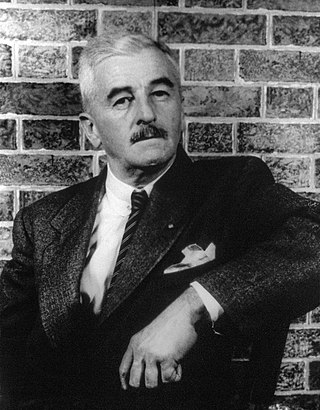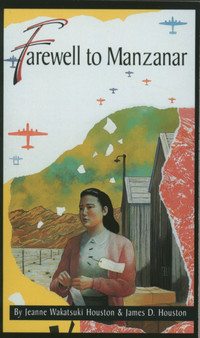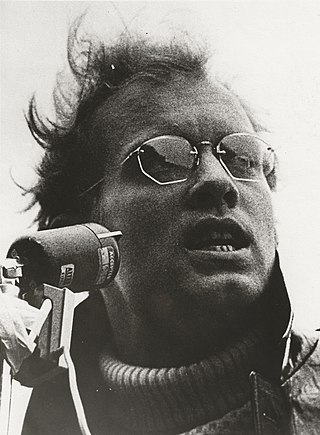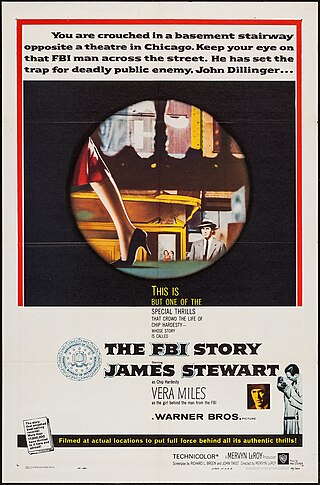Related Research Articles

William Cuthbert Faulkner was an American writer. He is best known for his novels and short stories set in the fictional Yoknapatawpha County, Mississippi, a stand-in for Lafayette County where he spent most of his life. A Nobel laureate, Faulkner is one of the most celebrated writers of American literature and often is considered the greatest white writer of Southern literature.

The United States Marshals Service (USMS) is a federal law enforcement agency in the United States. The Marshals Service serves as the enforcement and security arm of the U.S. federal judiciary, and it is an agency of the U.S. Department of Justice and operates under the direction of the U.S. Attorney General. U.S. Marshals are the original U.S. federal law enforcement officers, created by the Judiciary Act of 1789 during the presidency of George Washington as the "Office of the United States Marshal" under the U.S. District Courts. The USMS was established in 1969 to provide guidance and assistance to U.S. Marshals throughout the federal judicial districts.

David Keith McCallum was a Scottish actor and musician, based in the United States. He gained wide recognition in the 1960s for playing secret agent Illya Kuryakin in the television series The Man from U.N.C.L.E (1964–1968). His other notable television roles include Simon Carter in Colditz (1972–1974) and Steel in Sapphire & Steel (1979–1982). Beginning in 2003, McCallum gained renewed international popularity for his role as NCIS chief medical examiner Dr. Donald "Ducky" Mallard in the CBS television series NCIS, which he played for 20 seasons until his death in 2023. In film roles, McCallum notably appeared in The Great Escape (1963), and as Judas Iscariot in The Greatest Story Ever Told (1965).

Andrew Russell Pearson was an American columnist, noted for his syndicated newspaper column "Washington Merry-Go-Round". He also had a program on NBC Radio titled Drew Pearson Comments. He was known for his approach towards high-level politicians, such as senators, cabinet members, generals and American presidents.

Bartholemew William Barclay "Bat" Masterson was a U.S. Army scout, lawman, professional gambler, and journalist known for his exploits in the late 19th and early 20th-century American Old West. He was born to a working-class Irish family in Quebec, but he moved to the Western frontier as a young man and quickly distinguished himself as a buffalo hunter, civilian scout, and Indian fighter on the Great Plains. He later earned fame as a gunfighter and sheriff in Dodge City, Kansas, during which time he was involved in several notable shootouts.

Farewell to Manzanar is a memoir published in 1973 by Jeanne Wakatsuki Houston and James D. Houston. The book describes the experiences of Jeanne Wakatsuki and her family before, during, and following their relocation to the Manzanar internment camp due to the United States government's internment of Japanese Americans during World War II. It was adapted into a made-for-TV movie in 1976 starring Yuki Shimoda, Nobu McCarthy, James Saito, Pat Morita, and Mako.

William Clark Falkner was a military veteran, businessman, and author in northern Mississippi. He is most notable for the influence he had on the work of his great-grandson, author William Faulkner.

David Victor Harris was an American journalist and activist. After becoming an icon in the movement against the Vietnam War, organizing civil disobedience against military conscription and refusing his own orders to report for military duty, for which he was imprisoned for almost two years, Harris went on to a 50-year career as a distinguished journalist and author, reporting national and international stories.

The FBI Story is a 1959 American crime drama film starring James Stewart, and produced and directed by Mervyn LeRoy. The screenplay by Richard L. Breen and John Twist is based on a book by Don Whitehead.
The Goingsnake Massacre refers to the eleven victims of a fatal shootout on April 15, 1872, that broke out during a murder and assault trial in the Cherokee court in the Goingsnake District of the Cherokee Nation The dead included three Cherokee on the defendant's side, including his attorney and a brother; a US Deputy Marshal and four members of his federal posse, plus three relatives of the Cherokee murder victim. Another ten men were wounded, including both Cherokee and white men.
The killings at Coolacrease was an incident that took place in County Offaly during the Irish War of Independence. In late June 1921, Irish Republican Army (IRA) volunteers came under fire at a roadblock in the rural area of Coolacrease. The roadblock was located at the boundary of land owned by loyalist farmer William Pearson. On 30 June, his sons Richard and Abraham Pearson were shot by an IRA firing squad and their house was burnt.

William Larkin Stiles, better known as Billy Stiles or William Larkin, was an American outlaw in the Old West who, with partner Burt Alvord, led a small gang of train robbers while serving as a deputy sheriff in Arizona Territory.

In June 1962, inmates Clarence Anglin, John Anglin, and Frank Morris escaped from Alcatraz Federal Penitentiary, a maximum-security prison located on Alcatraz Island in San Francisco Bay, California, United States. Late on the night of June 11 or early morning of June 12, the three men tucked papier-mâché model heads resembling their own likenesses into their beds, broke out of the main prison building via ventilation ducts and an unguarded utility corridor, and departed the island aboard an improvised inflatable raft to an uncertain fate. A fourth conspirator, Allen West, failed in his escape attempt and remained on the island.
John Faulkner was an American writer. His works, in a plain style, depict life in Mississippi. Faulkner is best-remembered for the novels Men Working (1941) and Dollar Cotton (1942), and the memoir, My Brother Bill: An Affectionate Reminiscence (1963), about his elder sibling, author William Faulkner.
The Kirk–Holden war was a police operation taken against the white supremacist organization Ku Klux Klan by the government in the state of North Carolina in the United States in 1870. The Klan was using murder and intimidation to prevent formerly enslaved people and members of the Republican Party from exercising their right to vote in the aftermath of the American Civil War. Following an increase in Klan activity in North Carolina—including the murder of a black town commissioner in Alamance County and the murder of a Republican state senator in Caswell County—Republican Governor of North Carolina William W. Holden declared both areas to be in a state of insurrection. In accordance with the Shoffner Act, Holden ordered a militia be raised to restore order in the counties and arrest Klansmen suspected of violence. This resulted in the creation of the 1st and 2nd North Carolina Troops, which Holden placed under the overall command of Colonel George Washington Kirk.

Feuds in the United States deals with the phenomena of historic blood feuding in the United States. These feuds have been numerous and some became quite vicious. Often, a conflict which may have started out as a rivalry between two individuals or families became further escalated into a clan-wide feud or a range war, involving dozens—or even hundreds—of participants. Below are listed some of the most notable blood feuds in United States history, most of which occurred in the Old West.

The Machita incident refers to events in southern Arizona between October 1940 and May 1941 related to the resistance by traditional O'odham chief and medicine man Pia Machita to the United States draft of Native American men in the World War II era. Because the government feared his influence among Native American peoples, tribal and federal forces attempted to arrest Machita in October for this resistance.
Isaac Parsons was an American planter, politician, and military officer in the U.S. state of Virginia. Parsons served as a Justice of the Peace of Hampshire County's District 3 from 1852 to 1853. He later served as a member of the Virginia House of Delegates representing Hampshire County from 1854 until 1857. Parsons was the grandson of Virginia House Delegate Isaac Parsons (1752–1796), the great-grandson of Colonial Virginia military officer William Foreman, and the grandfather of First Lady of West Virginia, Edna Brady Cornwell (1868–1958).

Francis Peter McKenna OBE was a British Royal Air Force service police detective, deputy to Wilfred Bowes who ran the Special Investigation Branch investigation into the murders of recaptured officers who had escaped in the 'Great Escape' from Stalag Luft III in March 1944. McKenna personally arrested over 20 of the "Gestapo" agents involved in the murders.
John McGavock Grider was a fighter pilot during World War I and one of the famous American war birds who trained in England. He is credited with downing four enemy aircraft This was at the beginning of American aviation when the United States had not yet organized their own air service and defense. When America entered the war in 1917, aviation only became officially established and used in war a year later in May 1918. The air service became the newest branch of the U.S. army and had few pilots that were trained to endure combat. An aviation bill was passed in July 1917 for $640 million however it would take time to build airfields and planes.
References
- ↑ "Faulkner Friday: "The Tall Men" (1941); "Adolescence" (posthumous, released in 1979)". 2012-03-23. Archived from the original on 2017-05-19.
- ↑ Faulkner, William. "The Tall Men" (PDF). literaturesave2.files.wordpress.com.